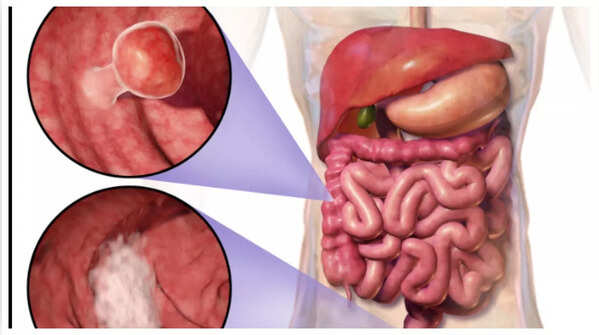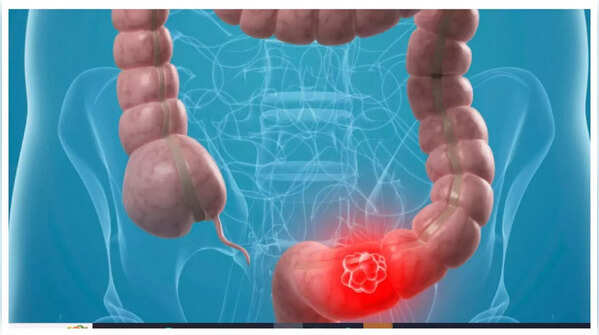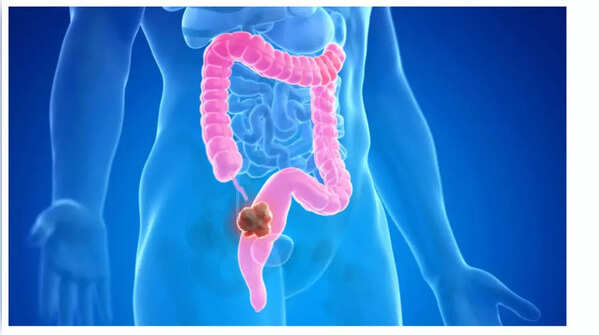Colon cancer, also known as colorectal cancer, is a disease that develops in the colon or rectum. It often begins as small, noncancerous clumps of cells called polyps, which can become cancerous over time. While most cases occur randomly, factors such as family history, obesity, and lifestyle can increase the risk. Most cases are diagnosed after age 50, and early symptoms can be subtle, often mistaken for common digestive issues. However, certain warning signs should not be ignored.

One of the earliest indicators of colon cancer is a noticeable shift in bowel habits, including:
These changes might seem insignificant or temporary, easily attributed to diet, stress, or minor infections. However, if these alterations persist for more than a few days or recur frequently, it could be an early warning sign. Persistent changes may indicate that a growing tumor is disrupting normal bowel movements.

The presence of blood in the stool should always be evaluated by a medical professional. It can manifest as:
In some cases, the bleeding may be minimal and undetectable to the naked eye, leading to anemia over time. While blood in the stool can be caused by various conditions like hemorrhoids or infections, ruling out colon cancer is crucial, particularly if it's a recurring issue or accompanied by other symptoms.

Ongoing abdominal discomfort is another early symptom often overlooked. This can involve:
Such discomfort might be mistaken for indigestion or other minor digestive problems like constipation. However, if the pain is continuous and unrelated to dietary or lifestyle changes, it could signal a tumor causing irritation or blockage in the colon.

Experiencing unusual fatigue or weakness without an apparent cause can be a subtle sign of colon cancer, especially when combined with other symptoms. This can occur due to slow, unnoticed bleeding in the colon, potentially leading to iron deficiency anemia. With fewer red blood cells, the body struggles to carry enough oxygen, resulting in fatigue, shortness of breath, and weakness. While these symptoms might be dismissed as stress or lack of sleep, they warrant medical evaluation.

Losing weight without actively trying is a common symptom in many cancers, including colon cancer. When the body is combating cancer, the immune system operates in overdrive, and tumors can impact digestion and appetite. If you notice significant weight loss despite no changes in your diet or exercise routine, consulting a doctor is essential. While this symptom often emerges later, it can sometimes be an early warning sign.

Disclaimer: This article is for informational purposes only and does not substitute professional medical advice. Always consult with a healthcare provider for any health concerns.
Sources:

Eat a well-balanced and nutritious diet.

If you suffer from any of these, do not ignore

A cancer diagnosis profoundly impacts a person mentally, often triggering a cascade of intense emotions.

Consult a doctor, if you experience any of these symptoms. Donot wait for the symptoms to worsen.

Exercise helps prevent many ailments, including cancer

Make sure you do not ignore these symptoms

If you observe these signs, talk to a doctor.

Do not ignore these signs

Identify the symptoms before its too late
Newer articles
Older articles
 Emma Raducanu Shuts Down Carlos Alcaraz Dating Rumors with Playful Wimbledon Press Conference Quip
Emma Raducanu Shuts Down Carlos Alcaraz Dating Rumors with Playful Wimbledon Press Conference Quip
 Rishabh Pant's "Revolutionary" Cricket Style Hailed by Greg Chappell
Rishabh Pant's "Revolutionary" Cricket Style Hailed by Greg Chappell
 5 Silent Signals of Prediabetes: Recognize the Warning Signs Before a Blood Test
5 Silent Signals of Prediabetes: Recognize the Warning Signs Before a Blood Test
 Wimbledon 2025: Broadcast Guide for India and US Viewers - Dates, Prize Money, and Streaming Details
Wimbledon 2025: Broadcast Guide for India and US Viewers - Dates, Prize Money, and Streaming Details
 Smith Targets Second Test Return After Innovative New York Rehab
Smith Targets Second Test Return After Innovative New York Rehab
 Gavaskar Calls for Kuldeep Yadav's Inclusion in Second Test Amid Bumrah Fitness Doubts, Cites Birmingham Pitch Advantage
Gavaskar Calls for Kuldeep Yadav's Inclusion in Second Test Amid Bumrah Fitness Doubts, Cites Birmingham Pitch Advantage
 Skin Signals: 7 Unexpected Signs of Heart Disease You Should Know
Skin Signals: 7 Unexpected Signs of Heart Disease You Should Know
 India Poised for Dengue Breakthrough as Vaccine Candidate Nears Trial Completion
India Poised for Dengue Breakthrough as Vaccine Candidate Nears Trial Completion
 Science-Backed Steps to a Healthier Heart: 5 Simple Habits for a Stronger You
Science-Backed Steps to a Healthier Heart: 5 Simple Habits for a Stronger You
 FIFA Club World Cup 2025: Upsets, Messi Magic, and 2026 World Cup Concerns Emerge From Group Stage
FIFA Club World Cup 2025: Upsets, Messi Magic, and 2026 World Cup Concerns Emerge From Group Stage